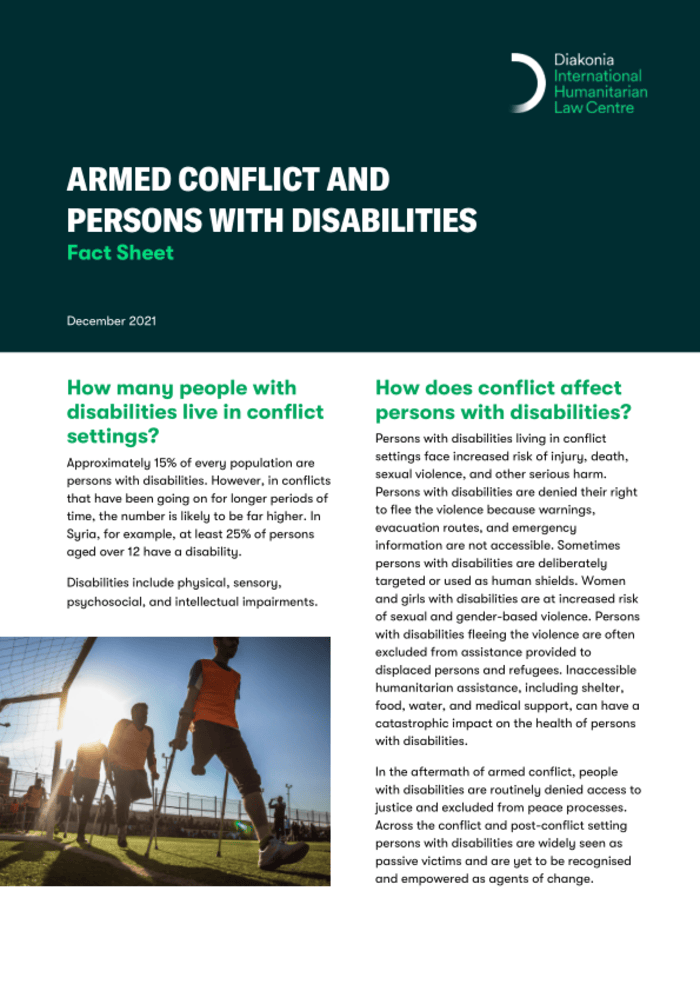Attachments
Approximately 15% of the world’s population lives with some kind of disability, yet this group is largely ignored in the application of international humanitarian law. Fact sheet on Armed Conflict and Persons with Disabilities.
How many people with disabilities live in conflict zones?
Around 15% of the population is disabled, but in long-running conflicts the number can be much higher: in Syria, for example, at least 25% of people over the age of 12 are disabled.
Disabilities include physical, sensory, psychosocial and intellectual disabilities.
How does conflict affect people with disabilities?
People with disabilities living in conflict zones are at increased risk of injury, death, sexual violence and other serious harm. Without access to warnings, escape routes and emergency information, people with disabilities are denied their right to flee violence. People with disabilities are also deliberately targeted or used as human shields. Women and girls with disabilities are at increased risk of sexual and gender-based violence. People with disabilities fleeing violence are often excluded from the assistance provided to displaced people and refugees. Lack of access to humanitarian assistance, such as shelter, food, water and medical assistance, can have devastating effects on the health of people with disabilities.
In the aftermath of armed conflict, people with disabilities are routinely denied access to justice and excluded from peace processes. In conflict and post-conflict situations, people with disabilities are widely viewed as passive victims and are not recognized and empowered as agents of change.
Why does the law not protect people with disabilities in conflict zones?
Yes! The problem is not the law, but the way it is interpreted and applied. Many actors – military forces, armed groups, humanitarian organizations and legal professionals – fail to recognise the diversity of civilians affected by conflict and treat them as one homogenous group. When interpreting and applying legal frameworks, they overlook people with disabilities and fail to apply the law inclusively.
What is the Diakonia Centre for International Humanitarian Law doing about this?
We are experts in the law of armed conflict and are one of the few providers of legal and policy expertise that takes a comprehensive approach to interpreting and applying the law of armed conflict. We understand the diversity of civilians and strive to achieve an inclusive application of the law so that no one is excluded from the protections it offers.
We work with governments, disability organisations, UN agencies and organisations, and humanitarian organisations to promote inclusion.
Our aim is to raise the profile of disability rights in the application of international humanitarian law and contribute to changes in policy and practice, for example through updating military manuals.
If you would like to know more about our work or discuss a collaboration, please get in touch.

